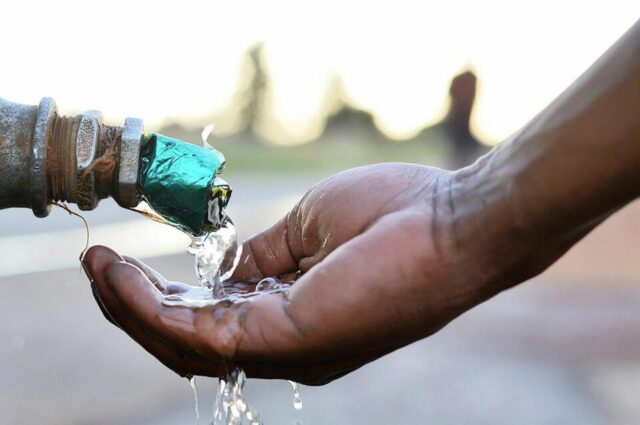More than 50% of people surveyed are seriously concerned about freshwater shortages, according to research published ahead of the UN Water Conference.
MORE than 50% of people surveyed are seriously concerned about freshwater shortages, according to research published ahead of the United Nations Water Conference.
As world leaders gather in New York next week for the first United Nations Water Conference in 46 years, new research from GlobeScan highlights the global impact of worsening water shortages, which are disrupting societies, economies and the environment.
The GlobeScan Radar survey is a global survey conducted online among samples of 1,000 adults in each of 31 countries and territories, weighted to reflect general population census data.
The research was conducted during June and July of 2022 with a total of 29,293 participants.
According to the findings of the study, 58% of people surveyed across the world are “very concerned” about freshwater shortages, with 30% saying that they have personally been “greatly” impacted by a lack of fresh water.
Climate change has been strongly linked to water shortages, with nearly four in 10 people who have been personally affected by climate change, saying they experienced it through the drought.
Together with Circle of Blue and the World Wildlife Fund for Nature (WWF), GlobeScan plans to release these key water findings from its Radar Survey ahead of the UN Water Conference which is set to take place from March 22 to 24.
Key research findings of the study include:
● 58% of people globally believe that freshwater shortages are a “very serious” issue.
● Mexicans, Colombians and Brazilians report the most concern about access to water, while people in China, Hong Kong, Japan and South Korea are the least concerned.
● In South Africa, 79% of people said water shortages were a very serious concern.
● Strong concern about freshwater shortages has increased over the past few years, from a low of 49% in 2014 to 61% in 2022 among 17 countries consistently tracked, along with concern about climate change (45% in 2014 to 65% in 2022).
● People in Argentina, South Korea, Vietnam, Colombia, Germany and Peru report the largest increases in concern about water shortages over the past year.
● 30% of people globally claim they are “greatly” personally affected by freshwater shortages, while a global majority feel at least moderately personally affected (56%).
● Only a quarter (25%) say they are not affected at all. In South Africa, 40% of people said they had been “greatly impacted” by freshwater shortages and 27% said they had been moderately impacted.
● Majorities of people surveyed in Colombia, Italy, Mexico, Peru and Türkiye say that they are greatly personally affected by a lack of fresh water. In contrast, fewer than one in 10 say that they are greatly affected in Germany, Japan and the Netherlands.
● Globally, people in urban areas (32%) are more likely than those in rural (28%) or towns and suburban areas (26%) to feel greatly affected by a lack of fresh water.
● As many as 38% of people say they have been “greatly” personally affected by climate change, while as many as 75% have been at least “moderately” affected.
● People who say they have been personally affected by climate change often mention drought as one of the ways they have been impacted; 37% of those experiencing climate change personally claim this is through experiencing drought.
● Of the South Africans who reported being impacted by climate change, 39% said they were impacted by drought and 48% by floods.
● 96% of South Africans say water pollution in rivers, lakes and oceans is a very serious or serious issue.
“We are seeing a rare convergence when public opinion is aligning with profound realities as the world faces compounding water challenges that are affecting how we grow our food, generate our power, and support a sustainable economy and environment,” said J Carl Ganter, managing director at Circle of Blue.
“This survey of some 30,000 people definitely shows that citizens around the world are feeling and talking about the effects of water and climate stress. On the eve of the UN-Water Conference, this is a crucial barometer that reveals increasing public demand for action from political and corporate leaders,” Ganter concluded.
Alexis Morgan, WWF global water stewardship lead, said: “Water doesn’t come from a tap, it comes from nature. But with nature loss and climate instability increasing, water scarcity will only worsen, impacting societies and economies across the globe.
“Yet through collaboration, restoring wetlands, re-connecting rivers, and replenishing aquifers, we have proven ways to tackle these shared water challenges. It’s time to urgently invest in these solutions.”
Perrine Bouhana, director at GlobeScan commented that “It comes as no surprise that people are becoming more and more worried about the availability of freshwater. Last year droughts affected the lives of countless numbers of people on every continent.”
High levels of public concern about water mean there is an opportunity right now for governments and NGOs to help people and businesses understand how their actions can genuinely make a difference to this globally important problem that affects all of us.
Current Affairs








